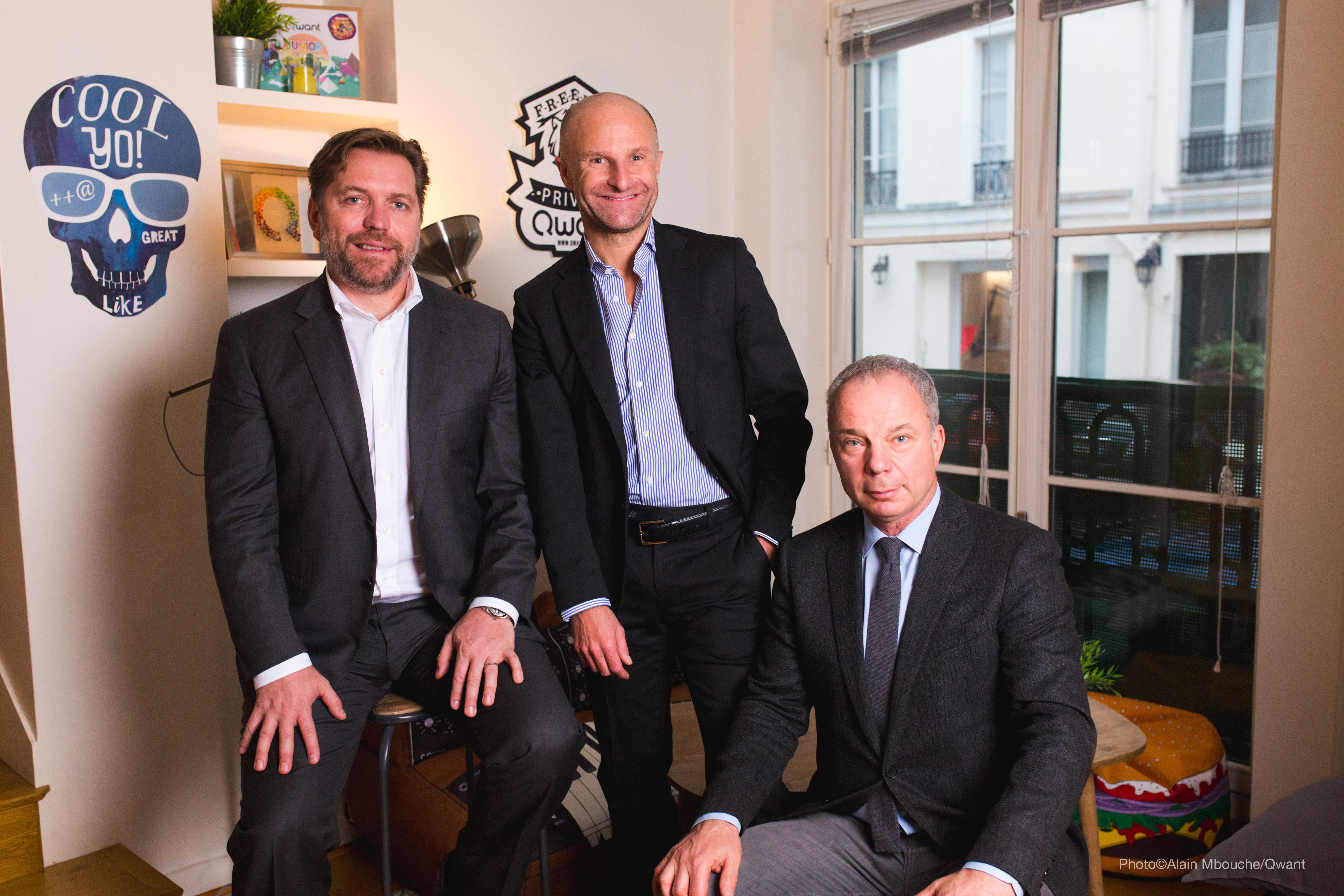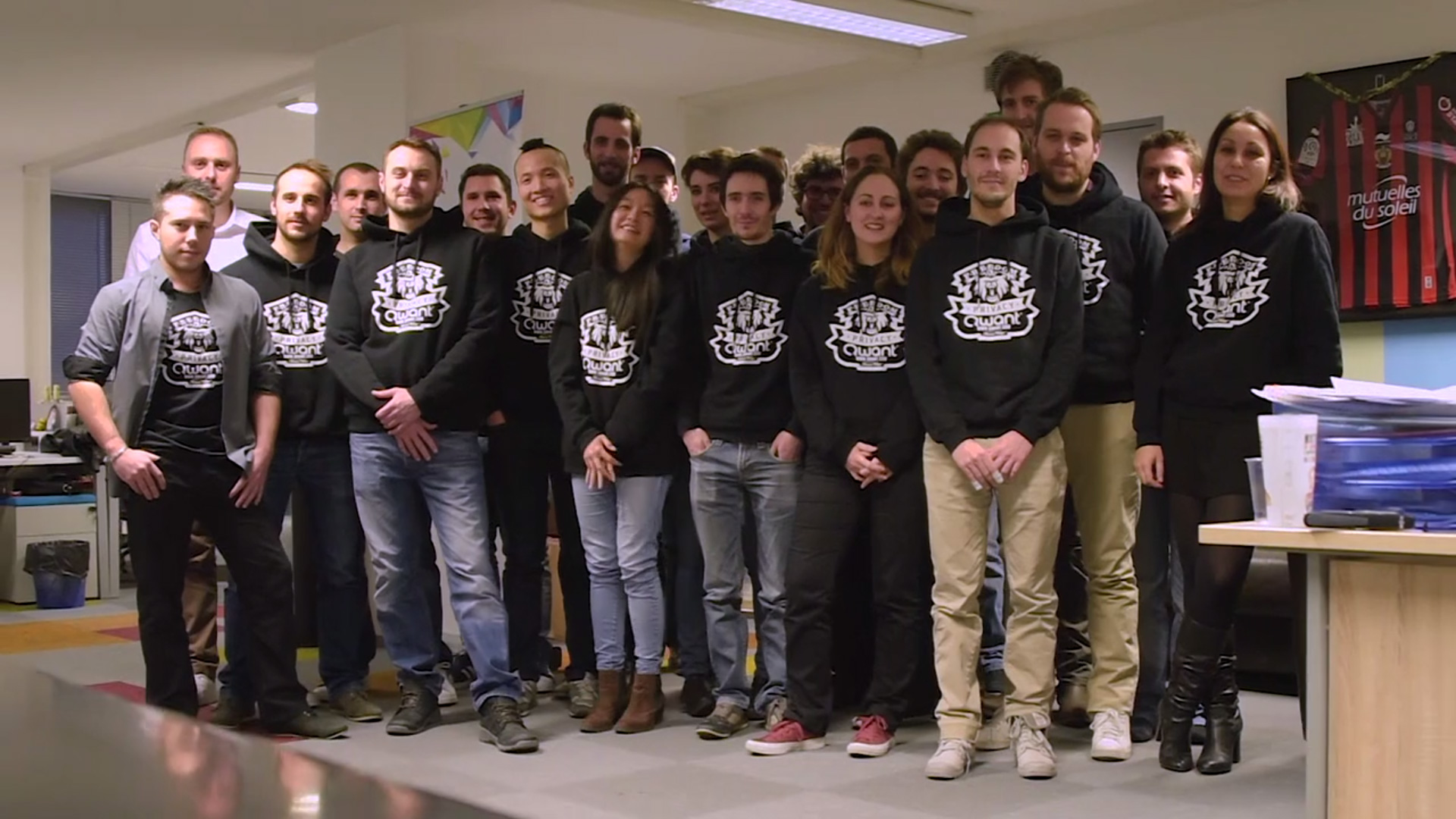Faced with Google's one-sided domination of the marketplace, the European competition is getting organised. Qwant is a Franco-German search engine vying for success by guaranteeing the utmost respect for the privacy of its users and only providing non-violent content to young children.
“Our competitors are failing because their product is the same as Google's, but worse. We are not trying to bring down the global colossus but rather to offer a real alternative,” cautions Eric Léandri, CEO and co-founder of Qwant. Formed by combining the words “Quantity” and “Want”, the search engine provides access to all web content – including social networks – on a single screen with the major advantage of protecting users against tracking, in particular by deleting cookies. “We guarantee the utmost respect for users’ privacy by not collecting any information that could be used to ascertain their identity or search history. We do not resell any personal information to advertising agencies and do not change the order of search results according to the user's profile or assumed income. Qwant users can search with confidence and avoid the constant invasive advertising barrage they are subjected to elsewhere,” says Eric Léandri.
A chink in Google's armour

From left to right: Qwant founders Eric Léandri, Alberto Chalon and Jean-Manuel Rozan. They are staking their success on the neutrality of results and respect for users’ privacy.
In 2009, when Google made a major shift in strategy to begin tracking its users and excluding social networks, founders Eric Léandri, Jean-Manuel Rozan, Patrick Constant and Alberto Chalon started dreaming of a European-style “Google”. IT security expert and company director Eric Léandri was behind the project, supported by former trader and financier Jean-Manuel Rozan. Patrick Constant and data processing specialist Pertimm provided the technology to sort and categorise the huge volume of information produced online. Pertimm has been creating internal search engines for prestigious clients such as PagesJaunes, Meetic and even NASA for around 15 years. Alberto Chalon is the founder of an Italian private sales site.
Launched in 2013 following two years of hard work, Qwant is now available in 13 languages (including several regional languages such as Catalan, Basque, Breton and even Corsican) and is present in 35 countries. Qwant has 32 million users a month – compared to 1 million unique visits a month when it launched – and processed 2.6 billion requests in 2016. “Qwant really took off in 2015 following an investment from German press group Axel Springer. That was when we unveiled Qwant's new design and introduced the European search engine's core features. We more than doubled our user base in 2016 and should pass the 45 million mark this summer,” adds Jean-Manuel Rozan.
Building legitimacy
The site's original founders are acutely aware that, in order to grow and become the number one European search engine chosen by consumers for its values, they must gain legitimacy. With innovation and the digital economy being one of its priorities for nurturing new leaders in the highly competitive online marketplace, the European Investment Bank (EIB) provided EUR 25m to support the Franco-German start-up. This financing is also part of the Horizon 2020 initiative and in particular the “InnovFin - EU Finance for Innovators” programme which provides customised products for financing the research and innovation projects of small, medium-sized and large enterprises and promoters of research infrastructure. “Building a competitive service like this and growing it across various markets requires energy and ideas but also significant financial resources. For the first time, we will also be launching large-scale publicity campaigns to raise our profile,” says Jean-Manuel Rozan.
Qwant currently holds a 2% market share in France (and 1% in Germany) and aims to secure 5% to 7% of the European market by 2020. Qwant sees itself as European rather than French or German: “We are nurturing partnerships with economic and charity players in both countries so that Qwant can promote the emergence of European solutions. For example in Germany we signed a cooperation agreement with Open Xchange regarding the development of secure messaging at a ceremony in Berlin attended by Angela Merkel and François Hollande,” adds Eric Léandri.
Qwant Junior: tailor-made for kids
In 2015, the start-up employed 60 people from all walks of life in Paris, Nice and Rouen, and continued its development by launching Qwant Junior, a search engine that excludes sexual and violent content. The site uses the black list of the University of Toulouse 1 to block inappropriate content for young users. 2.5 million pupils now use Qwant Junior at school. “Traditional search engines have a “safe search” option that does not display pornographic content, but this is not the case for violent content. Let's take the example of the Paris attacks. If you used a traditional search engine to search for “Paris” in November 2015 you would have been presented with violent images, while Qwant Junior would have displayed images of the Eiffel Tower. There is also no advertising and e-commerce sites are not given priority,” explain the founders.
A question of democracy
In addition to protecting users’ privacy, the founders emphasise the site's neutrality. Basically, this means that if two users – one in New York and the other in Paris – both search for “Andalusia”, they will receive exactly the same results using Qwant. “If you have a handful of search engines deciding what should be provided to billions of people, it’s not really a neutrality problem, but rather a democracy one,” says Eric Léandri. Jean-Manuel Rozan adds: “As we don't give priority to our own services, we have the trust of partners across Europe, who all have an interest in promoting the emergence of an alternative search engine that respects the principle of neutrality. Search engine diversity will ensure diversity in the economic players whose services are displayed by search results.”
Qwant operates neutrally and is financed by advertising based exclusively on the key words entered by the user. So if a user searches for a tablet or a night in a hotel in Rome, Qwant provides the results and when the user clicks on one of them, Qwant will earn a few cents.

Crawler: This is a very expensive robot that crawls the internet to index existing sites. Around 60 people in Paris and Nice maintain Qwant's servers and crawlers.
A European enigma
Like in other countries such as the US itself (60%), Brazil (65%), Japan (50%), Russia (45%) and even China (25%), global colossus Google dominates in Europe despite coming under fire for “policing” internet users, holding 95% of the European market. The Czech Republic is the only European country to escape the omnipresence of the American search engine thanks to a 100% local tool: Seznam. There are a number of reasons for this, most of which are linguistic and nationalist, but some are also linked to the presence of very successful local internet companies.
